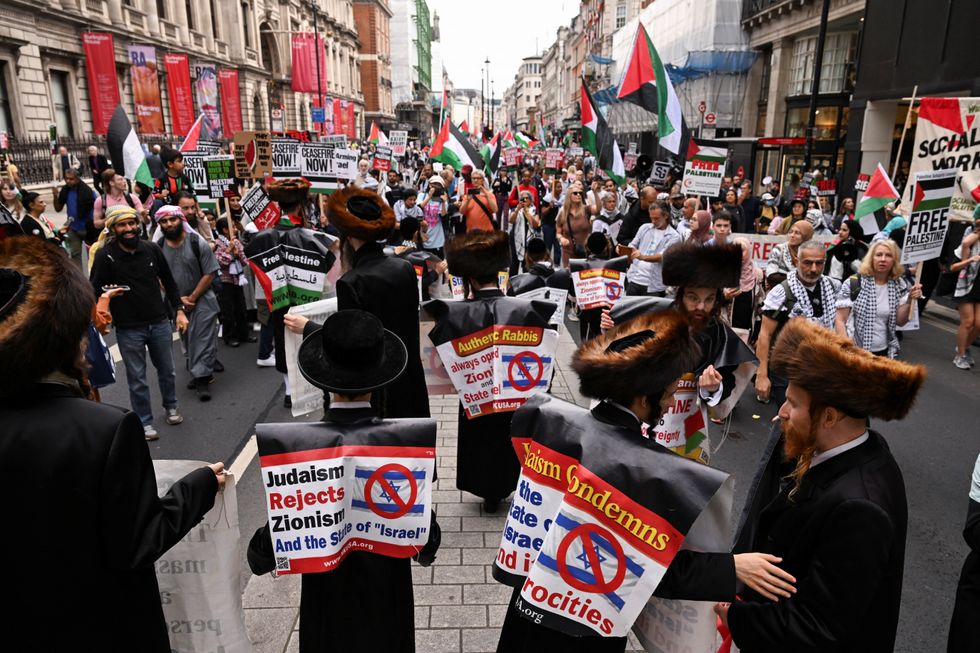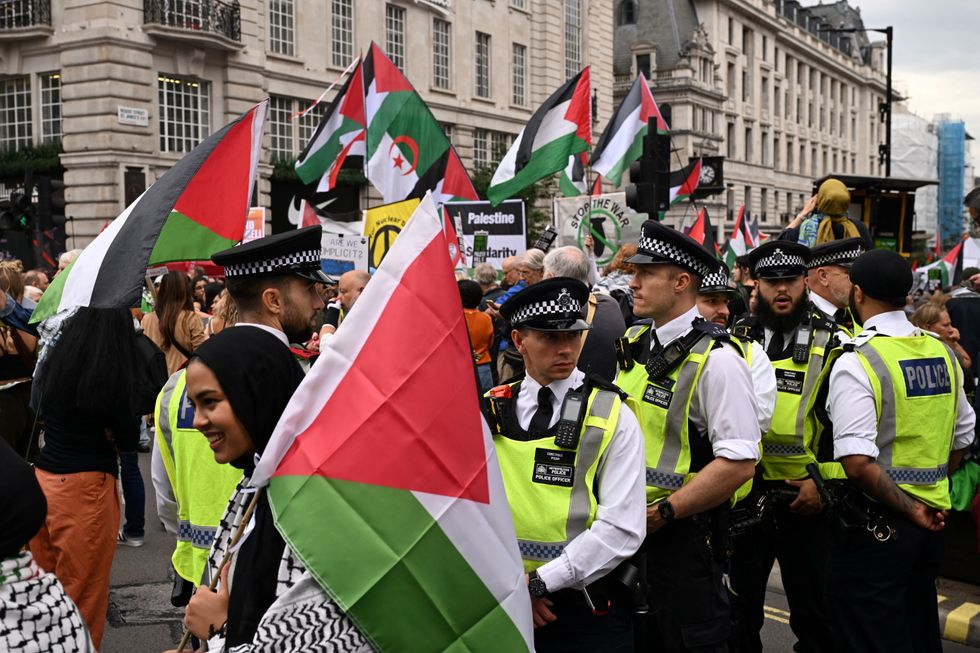The Metropolitan Police has admitted that "errors were made" in the handling of anti-Israel campaigners as a former Met Commissioner calls for protest laws to be "rebalanced"
Reuters
A report found that police and the courts are 'pandering to protesters' at the expense of ordinary citizens
Don't Miss
Most Read
Trending on GB News
The Metropolitan Police has admitted that "errors were made" in the handling of anti-Israel campaigners as a former Met Commissioner calls for protest laws to be "rebalanced".
A report found that police and the courts are "pandering to protesters" at the expense of ordinary citizens.
Former head of the Met Police, Lord Hogan-Howe, is now urging the Government to review legislation and police tactics.
In response to the report - by think tank Policy Exchange - Hogan-Howe said: "The Government must rebalance the legal regime in favour of ordinary members of the public going about their daily lives."
 The Metropolitan Police has admitted that "errors were made" in the handling of anti-Israel campaigners as a former Met Commissioner calls for protest laws to be "rebalanced"Reuters
The Metropolitan Police has admitted that "errors were made" in the handling of anti-Israel campaigners as a former Met Commissioner calls for protest laws to be "rebalanced"ReutersAccording to the report, the public would overwhelmingly support officers taking stronger action against disruptive protesters.
However, many demonstrators have not been prosecuted - despite "relentless" protests.
It comes as the new head of the Police Superintendents' Association, Nick Smart, said officers are "massively frustrated" that criminals are not all treated with the same efficiency as rioters.
Following criticism for not stopping a man shouting "jihad" at a pro-Palestinian protest last year, Met Assistant Commissioner Matt Twist admitted that the police have not always been quick enough to make arrests.
LATEST DEVELOPMENTS:
He added that "errors were made".
"When we look back at the policing of protests over the past eight months, we know we didn't get everything right, particularly in the early stages in October," he said.
However, Twist denied allegations of "two-tier" policing.
He added: "There is no such thing as 'two-tier or differential policing'.

Former head of the Met Police, Lord Hogan-Howe, is now urging the Government to review legislation and police tactics
Reuters
"There are an infinite number of tiers of policing, depending on the threat, harm and risk."
The Policy Exchange report suggests "the confused state of the legal regime" and "police not using their powers effectively" have generated an "unduly pro-protester picture".
It added that this has left members of the public unable to undertake their normal day-to-day activities due to "relentless" protests.








